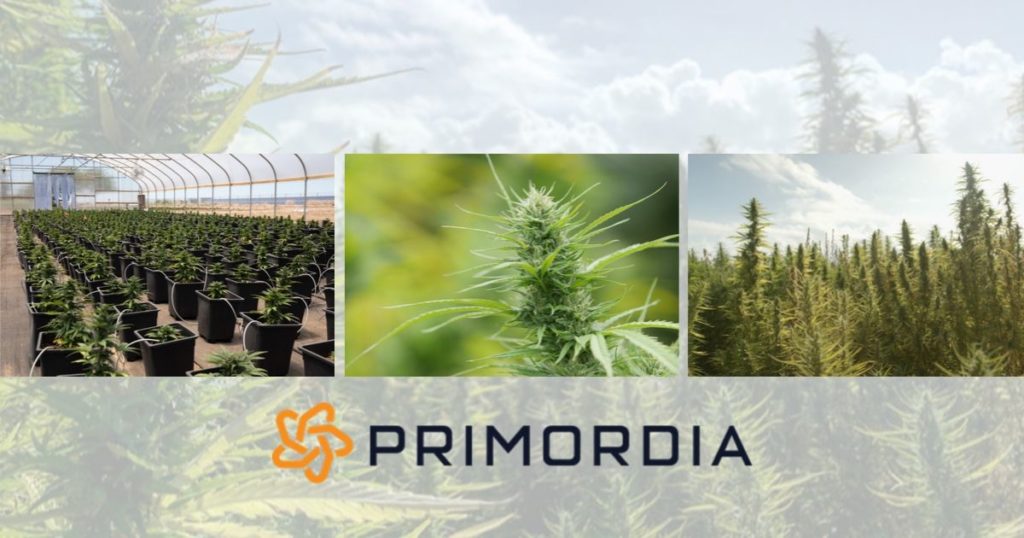 With Deep Roots in a Desert Oasis PRIMORDIA LLC is Poised to Put Southern California Hemp Production on the Map
With Deep Roots in a Desert Oasis PRIMORDIA LLC is Poised to Put Southern California Hemp Production on the Map
With the passage of the 2018 Farm Bill, the hemp plant has rightfully been freed from decades of senseless prohibition imposed by our federal government, opening endless doors of opportunity to American farmers and entrepreneurs willing to take the chance and plant the seed. Since last December, the commercial cultivation of hemp in America has quadrupled as the lifting of age-old restrictions has coincided with the boom in popularity of CBD-based products. With no legal limitations for import and export of hemp-based products, the global hemp industry that is expected to haul in $2.6 billion in revenue by 2022 is wide open for business.
In a market expected to be quickly saturated not only by an abundance of domestically grown and crafted products but by imported goods as well, how can an all-American startup hemp company rise above the crowd? Just like with the plant itself, it starts with the roots in the soil and those roots run a century deep for the founders of Primordia, LLC in Southern California’s Imperial Valley.

LOCATION, LOCATION, LOCATION
It seems like the first sales pitch you hear from any hemp farm these days – whether they are in Kentucky, Arizona, or here in California, is that their particular microclimate and environmental conditions are the absolute ideal when it comes to hemp cultivation.
If you have done any research at all about the history of the Imperial Valley, however, you can start to piece together plenty of reasons why Primordia’s claim may carry more weight. Situated between the Superstition Hills and the nearby Salton Sea, their sprawling ranch has been in the family since the early 1900s resting on a rich bed of loam soil on an ancient alluvial flood plain ideal for agriculture.
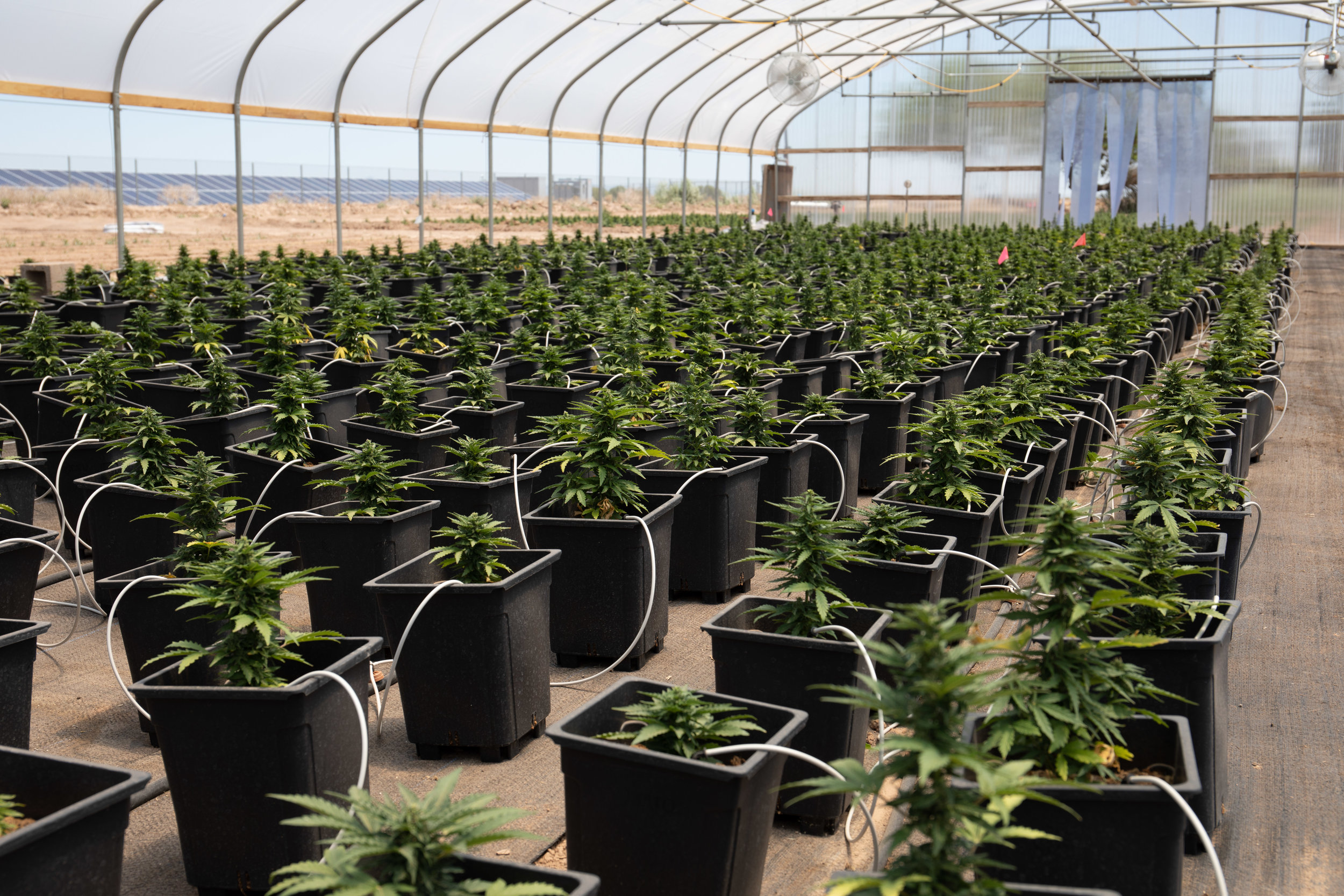 (photos courtesy of Primordia LLC)
(photos courtesy of Primordia LLC)
It was, however, in the heart of the desert and at the turn of the 20th century, water was still being imported by rail, making the valley rather inhospitable throughout most of the year. Recognizing the area’s potential, a group of progressive-minded developers successfully lobbied the government for the right to divert a portion of the immense flow of the Colorado River into a project called the All-American Canal that would cut across the rugged desert landscape and deposit a steady supply of fresh water into the Imperial Valley along the U.S. border with Mexico. This epic endeavor is full of gripping stories of heroism and ingenuity as men risked and lost their lives to the effort that would ultimately create a 500,000+ acre landscape lush with newfound opportunity for agriculture.
With a uniquely hemp-friendly sandy loam soil, a virtually endless supply of water, and the rights to it grandfathered into perpetuity by the federal government, Primordia has tapped into decades-long relationships and trust to unify the most forward-thinking farms in the valley under the banner of the “Primordia Hemp Collective” and together, they hold over 100,000 acres of prime farmland in this fertile valley.
To put that in perspective, on September 12th, the U.S. Department of Agriculture reported that 142,691 acres of hemp were planted this year nationwide. Though Primordia is not quite ready to fill their max acreage with hemp, they are well on their way to having a major impact on national hemp production and supply.
For the past 100+ years, farmers in the Imperial Valley have focused primarily on crops that grow close to the ground (spinach, potatoes, cauliflower, broccoli, etc.) and thrive in the winter months, as hotter summer weather complicated matters. This ran counter to most farmland in America which would flourish in the spring and summer before going dormant for the winter. Local farmers harvest over 100 different types of plants but now there is a new crop in the region, and not only does it grow like a weed, but it does so year-round in the Imperial Valley.
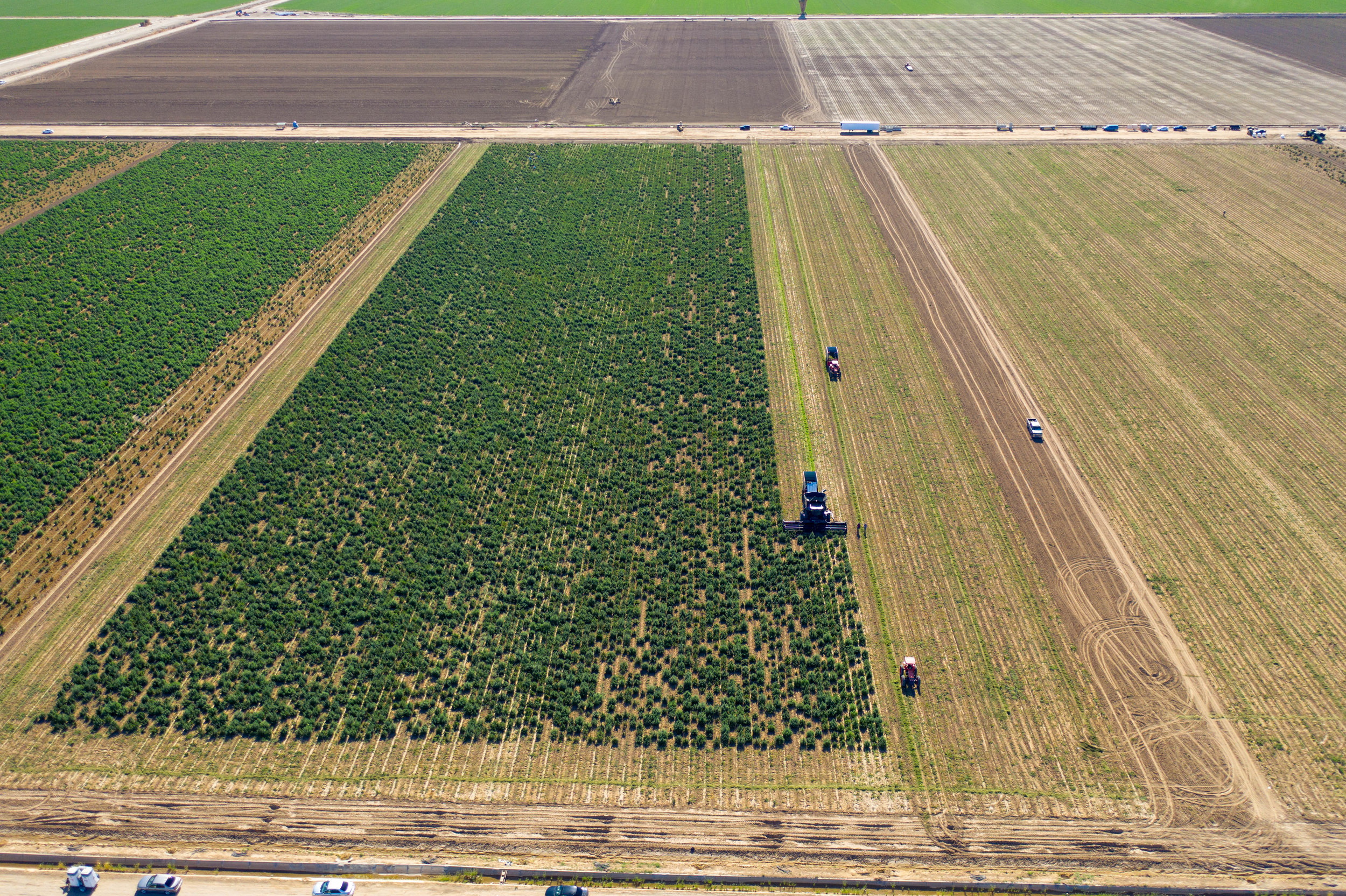
Endless acres, endless water, endless sun, and virtually no rain or humidity to encourage the typical hurdles that most hemp crops face – it’s no wonder that this unique region is widely considered to be some of the most ideal farmland in the entire world and it makes sense that Primordia would plant their seed there.
Countless coyotes, deer, mountain lions, and millions of migrating birds call the valley home as well. In fact, of the 800 different species of birds found in North America, more than 400 of them can be spotted in the Imperial Valley.
INTEGRATION AND INTEGRITY
Sutton Morgan is the President of Primordia and the 10,000 or so acres of legacy farmland that make up their main base of operations has been in his family dating back to the early 1900s. With the Morgans being one of the first families to find success in the newly created agricultural oasis, Sutton and his partners at Primordia benefit from a century of relationship-building in the region along with a swath of firsthand knowledge about what works in the Imperial Valley, and what does not.
They planted their first hemp crop in January of this year, starting humbly with 20 acres, and proudly did so in 100% USDA Certified Organic soil, a distinction close to Sutton’s heart. This ensures that their products are always free from harmful pesticides, heavy metals, and other impurities currently plaguing the hemp and CBD market.
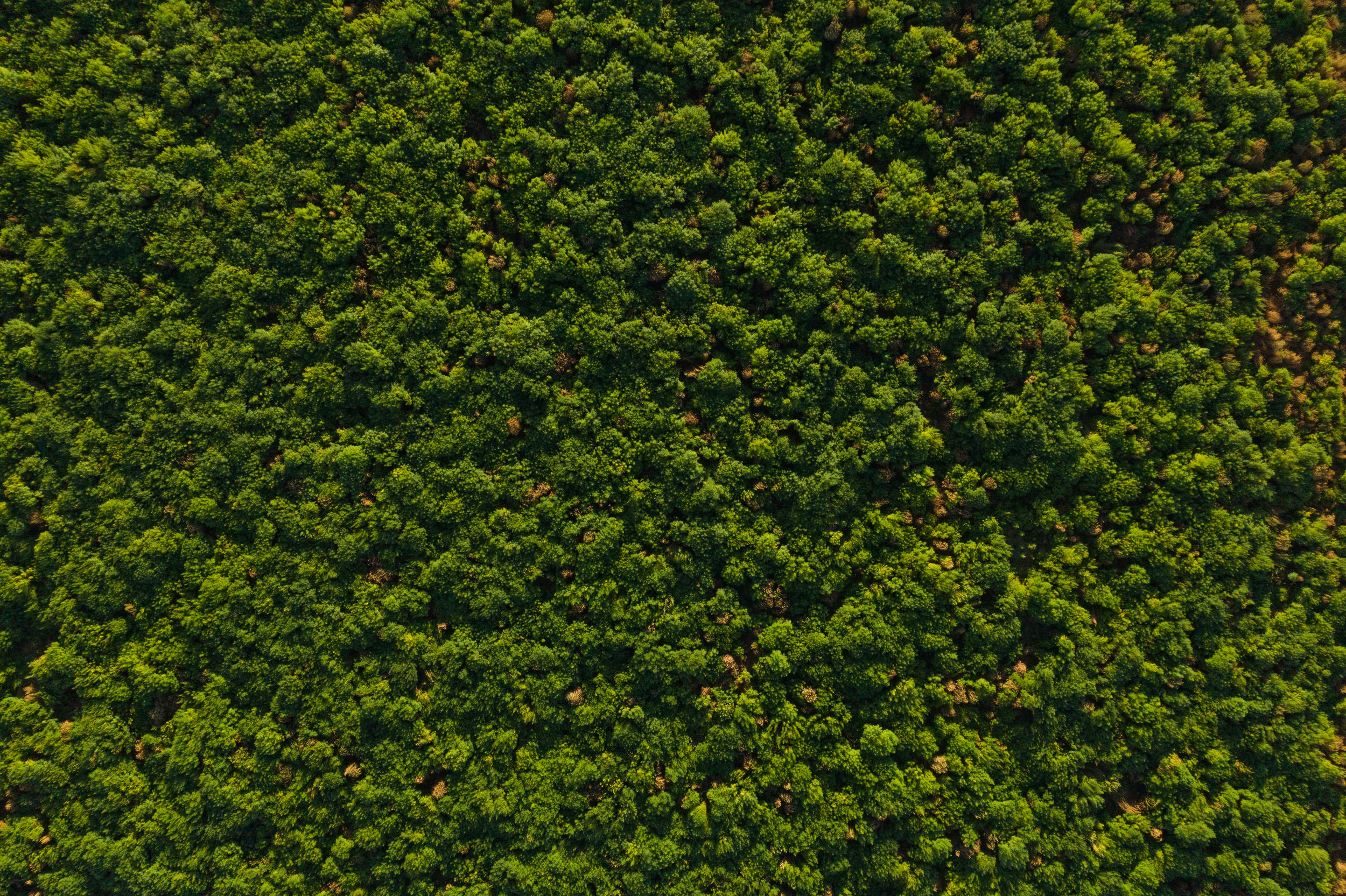
They continued planting on a weekly schedule through April of 2019, raising their plot of hemp to right around 300 total acres. One year from now, they plan to have more than 10x that much land planted, and that number will continue to compound over time. Weekly harvests are the ultimate goal and will ensure that they meet increasing market demand with a continuous supply of high-quality extracts and finished products.
This step-by-step method has proven to be a beneficial opportunity to hone their data-driven, evidence-based approach to this soon-to-boom industry. Almost anyone can grow a hemp plant, but scaling that to a size that can fuel a global market has proven to be a challenge for most hemp farmers. One industry insider was recently quoted giving an estimate that as much as $7.5 billion worth of legal hemp will rot on the ground this year at farms unprepared for a proper harvest.
Again, Primordia shines offering true vertical integration from seed propagation to large-scale cultivation, to cutting edge extraction and white label packaging options for brands of all sizes. A state of the art processing facility is well underway not far from the fields themselves and while we cannot give you many details just yet, let’s just say that the dryer that they’ve procured was brought by railway with a delivery cost in the mid-six-figure range.

This commitment to excellence is enhanced by the “in-house” quality control that Primordia can employ to every stage in the entire process. Primordia is the supply chain.
CULTIVATING KNOWLEDGE
This hands-on, large-scale operation is the result of years of preparation and self-education by Morgan and his partners but the insights that they have gained this year alone, now that they have plants in the ground, have been priceless.
Through a project that they have dubbed the Agronomic Research and Data Collection program, the team at Primordia has rapidly raised the bar when it comes to tracking and logging data from every step of the process quite literally from seed to sale. This in-depth analysis allows them to constantly refine their processes and enhance their product line.
In an admirable display of community outreach, Primordia has partnered with Imperial Valley College in a program called the Industrial Hemp Agronomic Research Agreement that will spread the knowledge that they are gaining in the field to the next generation’s workforce for whom hemp will play an increasingly larger role in their economy and lives.

Mark Samuels, a co-Founder of Primordia, is especially proud of their work in the community, particularly with the local college. “We’ve worked to develop research programs, we’ve hired five or six interns from there, we have donated to the college, and we will continue to hire more of their students and to bolster education and research into the hemp industry,” says Samuels. “Being some of the first to do it in a big way down here, we want to make sure we do it with the highest integrity and with the community in mind.”
Their research is focused on the optimization of hemp cultivation specifically in the Imperial Valley region. One common denominator in nearly all struggling hemp farms is the owners’ failure to fully understand the environment they were growing in. Selecting genetics that show traits favorable to certain environmental conditions is crucial. As Primordia’s CEO Grant Mitchell, M.D., puts it, “A genetic that works great in Oregon might not perform so well in the Imperial Valley, and even though we can grow year-round, a genetic that works well in the fall may not work so well in the spring. There may even be differences in the soil types and the microclimates in the Imperial Valley.”
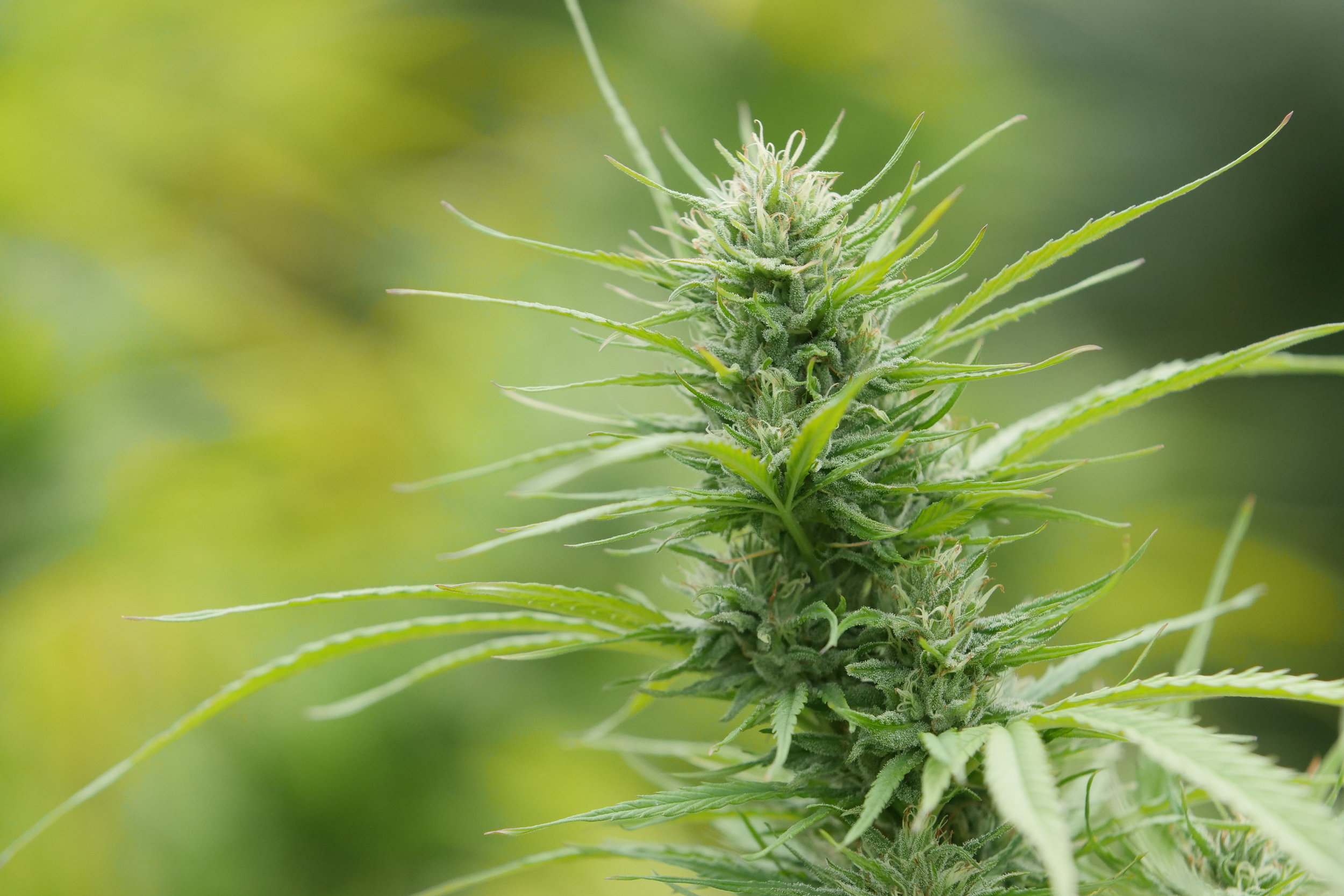
Given the scale of their operation, and their dedication to research, they have been able to perform a litany of controlled experiments, testing the viability of different genetics in different environmental conditions to see what works best. As Mitchell astutely puts it, there is no textbook for any of this. Companies like Primordia truly are blazing a new trail in American agriculture.
“As much as we are a generational farming operation, we’re also a technology company that is constantly identifying the best processes out there, testing them, and using an approach that we call ‘Technology Agnostic’ – where the best idea wins,” says Mitchell. From soil composition, to root health, fertilization techniques, genetic selection, to the spacing and watering of plants and the timing of when to put them in the ground, these are all factors that Primordia’s team is logging and analyzing at every stage.
BACK TO THE FUTURE
The history of hemp cultivation in the United States is well documented and the plant was even grown in the Imperial Valley in the 1940s to aid with the war effort during World War II. The prohibition of hemp for so many years has directly impacted the level of pollution and waste created by humans which, in turn, leads to a detrimental impact on the earth.
Fortunately, hemp is back to help clean up the mess. With a 3-4 month turnover in harvests, the plant requires much less water than other crops, it remediates both the air and the soil in its environment, and you can make it into thousands of different products from car parts to construction materials, board shorts to bath bombs, leaving almost no part of the plant unused.
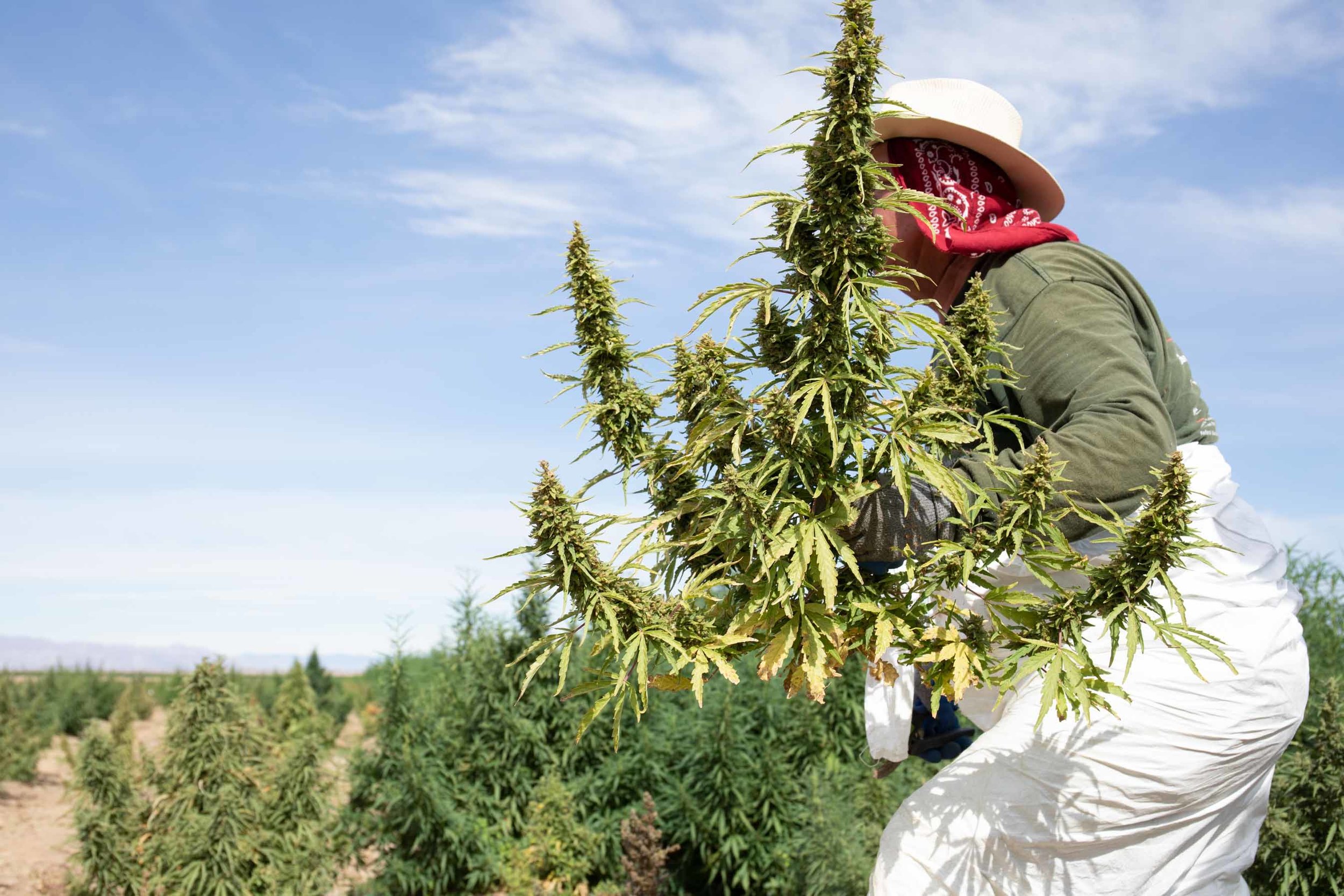
Walking through row after row of towering hemp plants, Mitchell told us, “We see an economy of broken supply chain, shady brokers, and unsophisticated actors who are trying to do their best but don’t have the experience or the resources. So our goal is to come in and fill those gaps, to utilize generations of experience in farming, and agriculture, and business, and operations, and logistics, and transport, and engineering, and extraction, and processing, and to bring all those together to create a solution for people in the market who simply want to access a reliable, consistent, and quality supply from a high-integrity source. With the scalability that we have and the amount of land that we have, the sky is the limit as far as us being able to be that resource for companies of any size. Whether it’s a small mom & pop that wants to come out with a new product that they really believe in and just need to make sure that the last thing they need to worry about is that they’ll be able to put the core ingredient in there reliably, or the big Fortune 500’s who are trying to bring this to the mass markets, maybe even internationally, we are going to be a singular source for them.”
We weren’t sure what to expect as we carved our way through the Southern California desert that morning – would these dudes be in ties and suits or Wranglers and boots? What we found was a down to earth crew very much like ours with a commitment to quality that we absolutely appreciate. They showed us a scale of agriculture that honestly made our jaws drop and it’s only going to grow. A recent update from the California Department of Food and Agriculture (CDFA) reports that the state currently has 16,899 registered acres of hemp under cultivation. Primordia has already begun planting 4,000 acres for their next harvest.
The late Jack Herer once said, “Hemp will be the future of mankind, or there won’t be a future.” Well, we can report that the future is here, and Primordia is prepared.
 Keep updated on all the latest news and updates in the Cannabis industry here at Beard Bros Pharms by signing for our Friday Sesh Newsletter here. Always Dank and Never Spam!
Keep updated on all the latest news and updates in the Cannabis industry here at Beard Bros Pharms by signing for our Friday Sesh Newsletter here. Always Dank and Never Spam!



